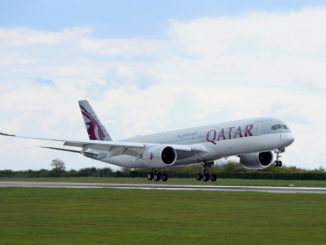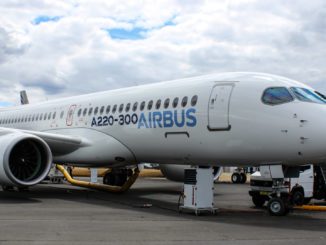
Saudia Group, which operates Saudi Arabia’s flag carrier Saudi as well as budget airline flyadeal, has placed an order for an additional 105 singe-aisle A320neo family airliners with European airframer Airbus.
Announced at the Future Aviation Forum in Riyadh, the deal adds to the 144 aircraft already on the books as part of the delivery backlog for Airbus.
The 105 aircraft order consists of 12 A320neo and 93 A321neo airliners which will help Saudia meet its ambitious expansion and sustainability goals.
His Excellency Engr. Ibrahim Al-Omar, Director General of Saudia Group, said: “Saudia has ambitious operational objectives to meet growing demand. We are increasing flights and seat capacity across our existing 100+ destinations on four continents, with plans for further expansion. The progress of Saudi Vision 2030 is attracting more visits, tourists, entrepreneurs, and pilgrims each year. This motivated our decision to secure this significant deal, which will create jobs, increase local content, and contribute to the national economy.”
Benoît de Saint-Exupéry, Executive Vice President Sales of the Commercial Aircraft business said: “The new additions of the A320neo family aircraft will play a vital role in contributing to Saudi Arabia’ ambitious Vision 2030 plan,” adding “It will enable Saudia Group’s strategy to advance the Kingdom’s aviation capabilities while enabling both airlines to benefit from the A320neo Family’s exceptional efficiency, superior economics, highest level of passenger comfort as well as lower fuel-burn and emissions.”
As well as having the widest single-aisle cabin in the skies, the A320neo family aircraft can currently operate on 50% sustainable aviation fuel (SAF) mix making it attractive to airlines looking to reduce their carbon footprint. Airbus aims to be able to operate A320neos on 100% SAF by 2030.
The wings for the A320neo family, and all other A3XX family aircraft, are built at Airbus’ Broughton, North Wales facility meaning that Airbus orders are always good news for the local and UK economy.




